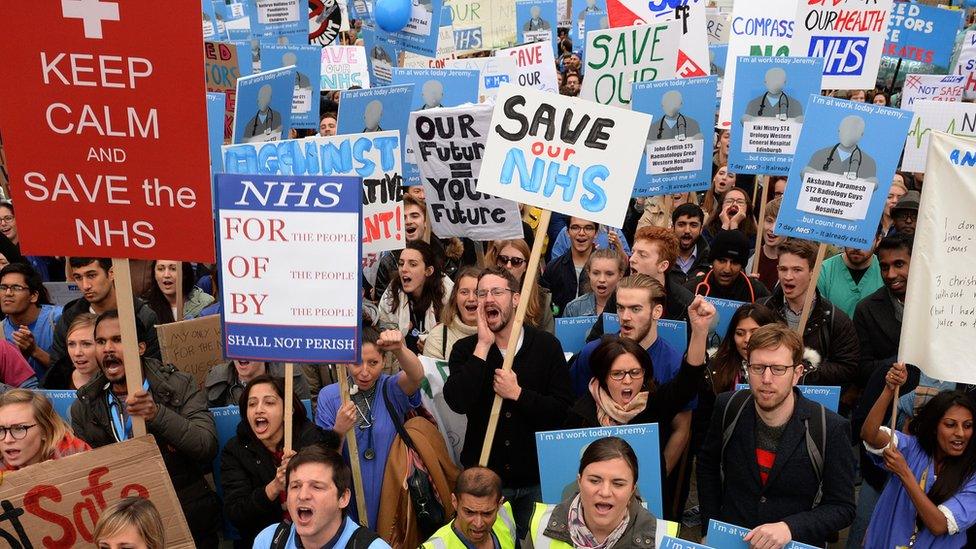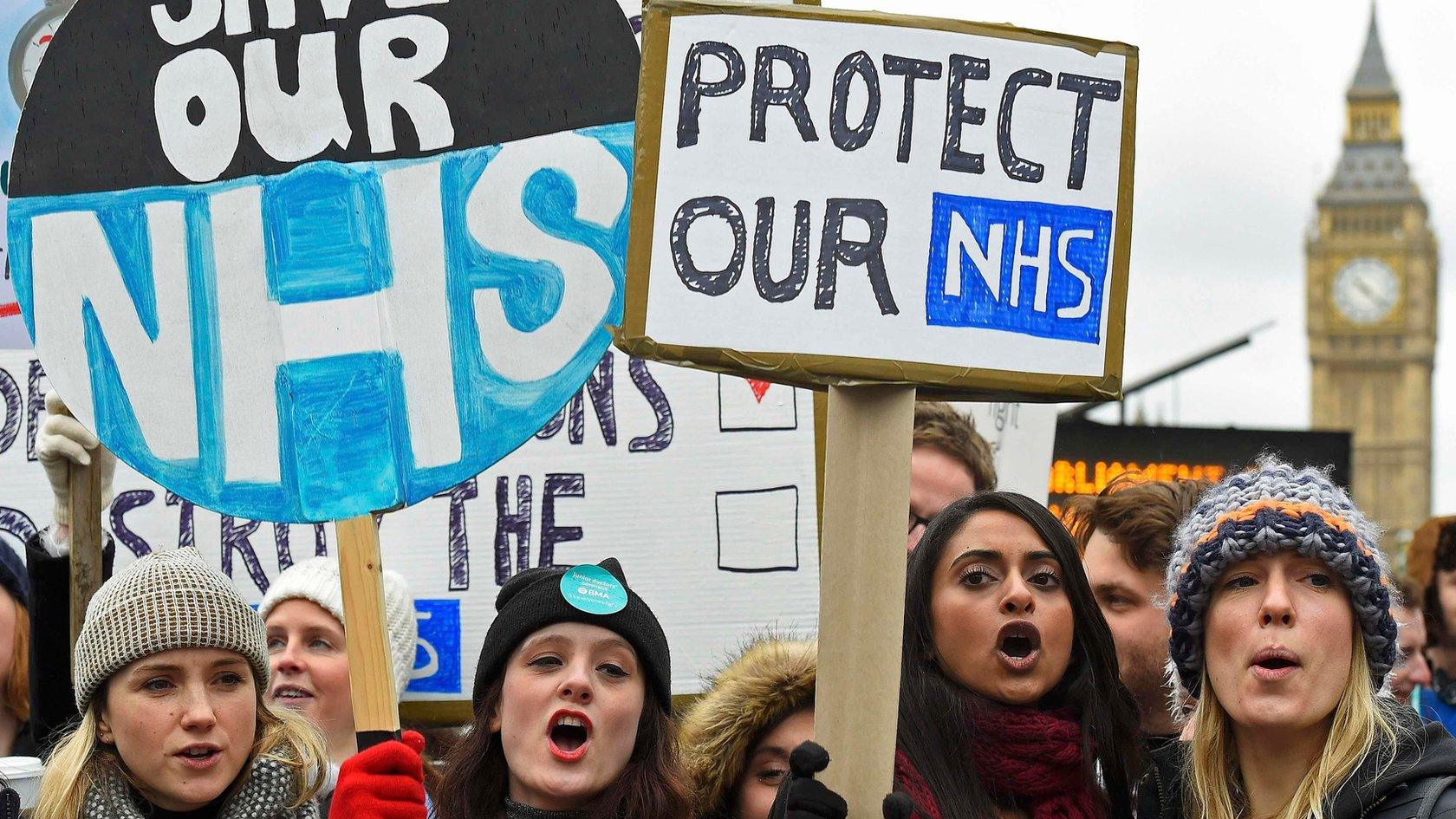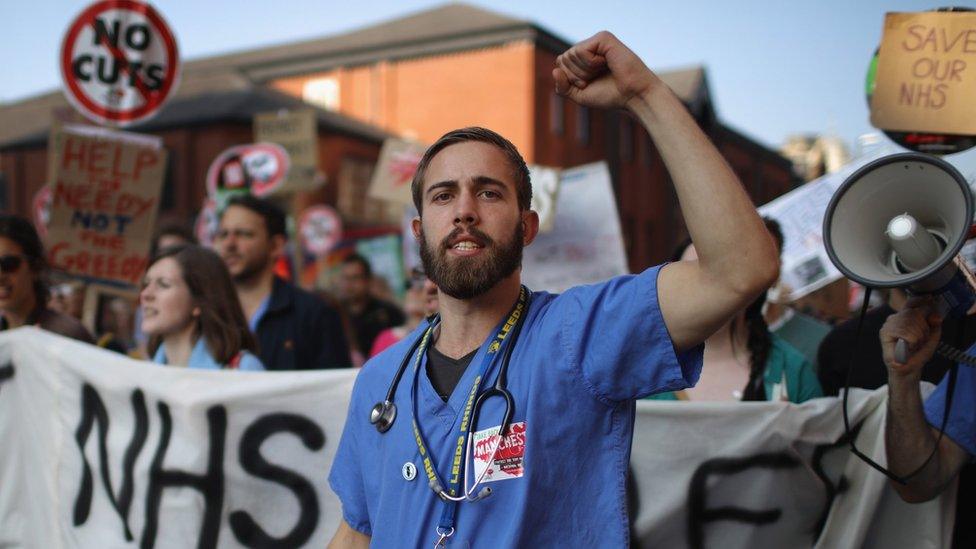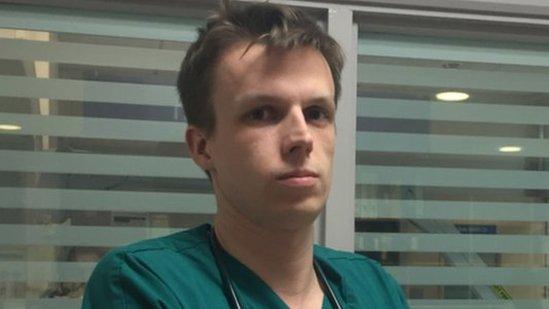Junior doctors' strike: Fresh talks 'ruled out'
- Published

Fresh talks to break the deadlock in the junior doctors' dispute in England have been ruled out by the government.
Sources told the BBC that the British Medical Association had blown its chance to negotiate and said there would be no deviation from imposition.
It means the first-ever all-out strike by junior doctors looks likely to go ahead in three weeks, with the BMA also maintaining it will not climb down.
This week's walkout, which ended at 08:00, did not involve emergency care.
But that will not be the case during the strikes on 26 and 27 April from 08:00 to 17:00, when junior doctors will walkout of A&E and intensive care. This has never happened before in the history of the NHS.
The prospect of an all-out strike has prompted a host of organisations, including the Academy of Medical Royal Colleges and Patients Association, to call on ministers to halt the imposition and for both sides to get back round the table.

How the dispute reached stalemate
Talks at conciliation service Acas broke down in January
A final take-it-or-leave it offer was made by the government in February but was rejected by the BMA
Ministers subsequently announced the contract would be imposed in the summer
It will reduce the amount paid for weekend work, but basic pay is being increased
The BMA wants a more generous weekend pay allowance and more investment for more seven-day services - the government is not increasing the overall budget for junior doctors' pay
Two legal challenges are being pursued by doctors against the imposition
Hospitals are pushing ahead with the new contract - offers are expected to go out in May

The BMA has indicated it is willing to talk.
The union's junior doctors' leader, Dr Johann Malawana, said on Thursday: "Any future action is wholly avoidable, but the government must get back around the negotiating table and end this dispute through talks."
But government sources said there was virtually no prospect of that happening as the BMA had had its chance but had been unwilling to compromise.
They said negotiators had refused to discuss the last remaining issue - Saturday pay - when the talks at conciliation service Acas were going on at the turn of the year and without a commitment to do that, which has not been forthcoming, there would be no point resuming talks.
In a statement, the Department of Health said the government has been left with "no choice" but to push ahead with imposition.
- Published6 April 2016

- Published6 April 2016

- Published6 April 2016
